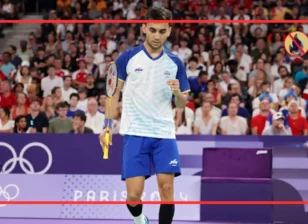France immigration crisis
France, like many European nations, faces a complex immigration crisis with multifaceted challenges. It involves issues related to border security, asylum seekers, and integration policies. France, being a major European destination, has faced significant pressure from migration flows, leading to debates on immigration laws and societal impacts.
The crisis has sparked political discussions, with some advocating for stricter border controls, while others emphasise humanitarian efforts. Addressing this multifaceted issue requires balancing security concerns with humanitarian values. It also fosters comprehensive immigration policies. The France immigration crisis remains a significant topic of concern and debate in contemporary Europe.
Historical context
The France immigration crisis gained prominence in the late 20th and early 21st centuries. It was shaped by several factors. Colonial ties, particularly with North Africa, led to significant post-independence migration. Economic disparities, high youth unemployment, and political instability in sending countries contributed to the influx. France’s generous social welfare system also attracted migrants.
Additionally, conflicts in the Middle East and North Africa, like the Syrian civil war, drove refugees to seek asylum in France. These factors fueled debates over assimilation, multiculturalism, and border security. The crisis prompted policy changes, including stricter immigration laws and increased border control, while raising questions about social cohesion.
Migratory Flows and Departures from Tunisia
The Southern Italian island of Lampedusa has been at the forefront of the European migratory crisis. It serves as a landing point for thousands of migrants, particularly those departing from Tunisia. The United Nations High Commissioner for Refugees (UNHCR)has called for European solidarity in managing the crisis. This appeal for unity echoes throughout the continent. Germany and other EU member states urging collective action and adherence to European agreements.
Complexities of the European Union’s stance
Italian Prime Minister Giorgia Meloni, a vocal advocate for a tougher stance on immigration. He has worked diligently to secure Italy’s borders. However, the complexities of the European Union’s stance on immigration and the intricacies of migratory flows stemming from departures from Tunisia continue to present significant hurdles.
Far-right and right-wing parties
This European migration crisis has also served as a rallying point for far-right and right-wing parties across the continent. It also includes France’s National Rally (RN). These parties have amplified their voices in the immigration discourse, advocating for stricter immigration laws. These parties also increased deportations, and a more stringent approach to undocumented workers.
Political deadlock on immigration
France’s own political deadlock on immigration mirrors the broader European conundrum. As the Migration Policy Institute outlines in its research. France faces a complex interplay of factors, including its immigration history and immigration agreements with other nations. These factors make finding a sustainable solution challenging.
Violation of human rights & Fluctuating immigration policies:
The concerns over human rights violations in the handling of migrants have stirred passionate debates. The balance between safeguarding national security and upholding human rights remains a contentious issue at the heart of crisis. France’s immigration policy has fluctuated between guaranteeing the human rights of immigrants. It also pushes them to the margins of society.
European Solidarity and the Role of Germany
European solidarity has been a central theme in addressing the immigration crisis. Germany, among other European nations, has advocated for collective action and the need to uphold human rights. European agreements have been essential in developing a cohesive response to the challenges posed by migration.
Immigration History and Labour Market Competition
Understanding the France immigration crisis requires considering its immigration history. France has a long history of immigration, largely shaped by post-war labour recruitment agreements. These agreements helped rebuild the country’s economy. They also fostered labour market competition and societal tensions.
Conclusion
The France immigration crisis is a microcosm of the larger European challenge. It is a complex issue that touches on historical, political, and humanitarian aspects and commitment to human rights. While the road ahead may be fraught with obstacles, addressing this crisis with empathy, collaborations. Its focus on the well-being of migrants is essential to finding a sustainable solution.





